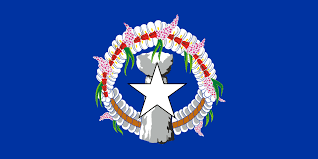by Tusi Tala, Staff Writer
The Northern Marianas and the US government are set to begin 902 talks in Saipan, focusing on matters that influence their relationship. Governor Arnold Palacios and Assistant Secretary of the Interior Carmen Cantor, appointed by President Joe Biden, are leading the two-day summit.
Section 902 of the Covenant mandates that both governments designate representatives to discuss and negotiate issues affecting their relationship, with the aim of producing a report and recommendations.
The Covenant established the current CNMI and defined its political relationship with the US, characterizing it as a political union, which means the CNMI operates as a self-governing entity within the American political framework.
Palacios noted that many sensitive issues remain unresolved. He expressed a desire to proceed with respect for the federal side, indicating that discussions will take place once all parties are present.
The primary focus of the 902 talks will be on matters related to Section 702 of the Covenant from 1975, particularly financial issues encompassing economic development, infrastructure, and financial assistance.
Palacios emphasized the urgency of these discussions, stating they have only two months to reach an agreement. Other priorities include federal assistance in tourism, transportation infrastructure, and access to skilled labor.
Section 702 initially provided a seven-year financial assistance period, which has continued through various long-term agreements. The latest agreement, effective in 1992, granted the CNMI $11 million annually for capital improvements, but it expired on September 30, 2003.
The CNMI’s economy, particularly in tourism, has struggled since the COVID-19 pandemic, with a significant drop in visitor numbers. The business sector has encouraged Palacios to request the reinstatement of the CNMI’s exemption from the flight cap between the US and China, stemming from a 2007 agreement allowing unlimited flights to Guam and the CNMI.
Additionally, the CNMI-Only Transitional Worker (CW-1) Program is set to end in 2029, with a current cap of 13,000 workers being reduced annually. By fiscal year 2025, the cap will be limited to 9,000, excluding construction and extraction jobs. Currently, about 5,000 CW-1 workers are in the CNMI, while the territory may need up to 15,000 foreign workers to support its growing economy and new industries.
Palacios expressed optimism about engaging with Cantor and her team in a transparent and open dialogue to collaboratively address these issues for the mutual benefit of the CNMI and the federal government.



